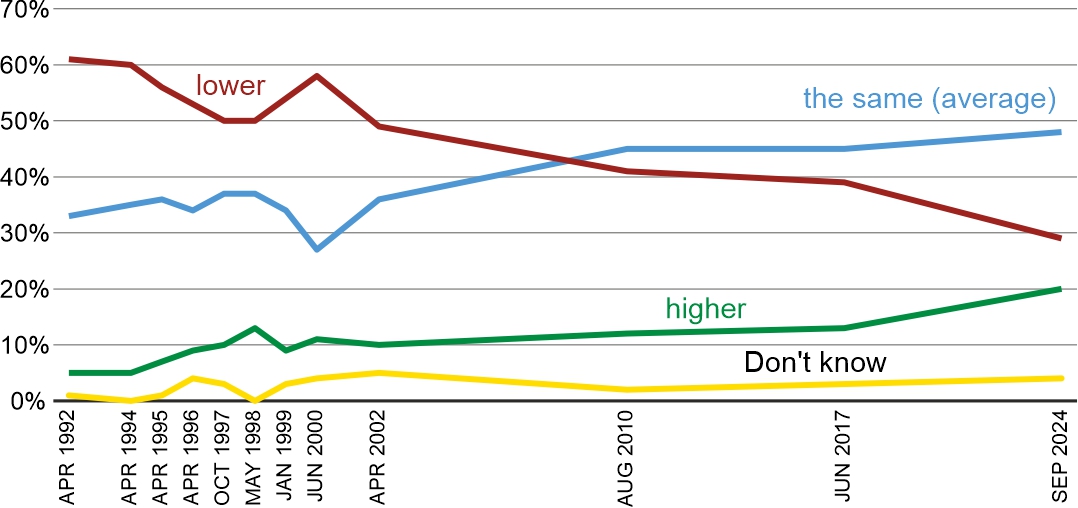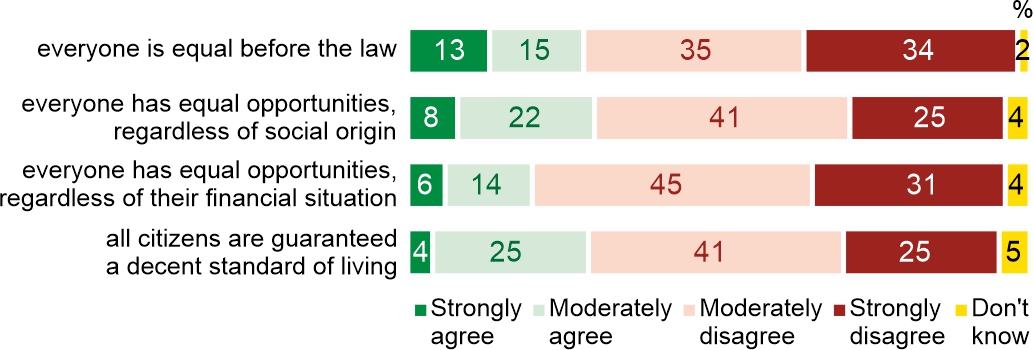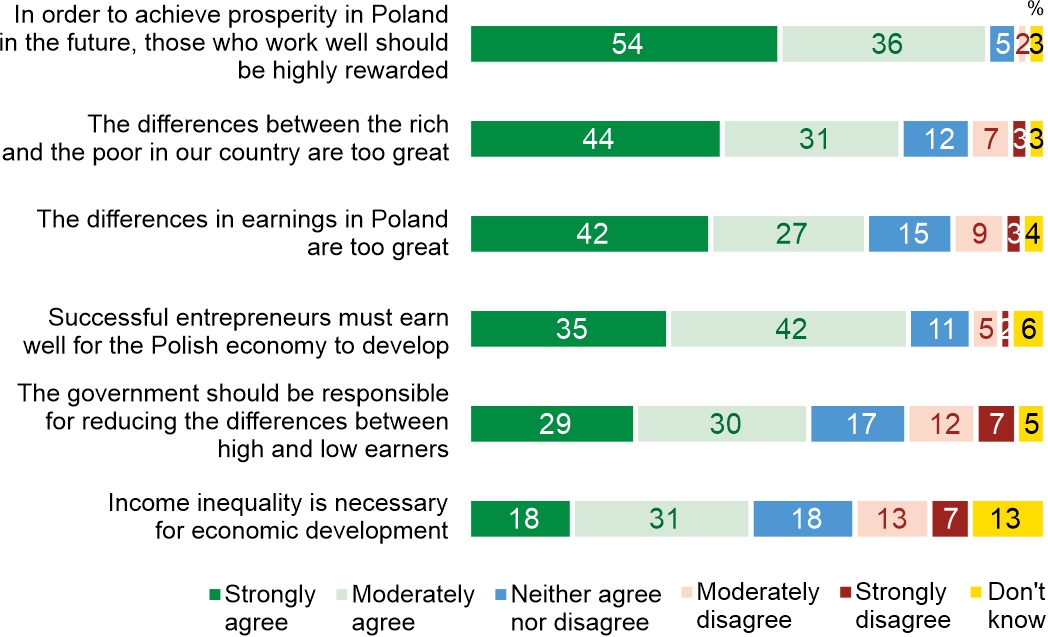Poles‘ Attitudes Towards Social Inequalities
Author: Małgorzata Omyła-Rudzka
|
2024-12-11
The largest proportion of respondents, i.e. almost half (48%), assess their financial situation as average – they believe that their family income is neither higher nor lower than the income of other families. Three out of ten respondents (29%) believe that it is lower than average, and one in five (20%) believe that it is higher. Since the beginning of the nineties, the percentage of respondents who believe that their family income is higher than average has increased from 5% in 1992 to 20% currently, with a corresponding increase in the number of people who claim that it is average (an increase from 33% to 48%). On the other hand, the percentage of respondents who think that their income is lower than average has decreased from 61% to 29%. It is worth noting that over the last seven years, the percentage of those who consider their family income to be higher than average has increased by 7 percentage points, while the percentage of those who believe that it is lower has decreased by 10 points.
Do you think that the current income of your family, compared to the average income of families in Poland, is:

The percentages of answers: "significantly higher" and "slightly higher" (higher) and "significantly lower" and "slightly lower" (lower) were summed up
The vast majority of Poles believe that equality, at least in the areas covered by the survey, is not currently respected. Respondents who believe that everyone is equal before the law (28%), has equal opportunities regardless of social background (30%) or financial situation (20%), and who believe that all citizens are guaranteed a decent standard of living (29%) are now in the minority.
Do you agree that currently in our country:

The vast majority of respondents believe that the differences between the rich and the poor in Poland are too large (75%). Slightly fewer are convinced that there is too much variation in earnings (69%). These percentages have decreased over the last seven years by 11 and 12 percentage points respectively and are the lowest recorded in the last three decades, but the inequality in our society is perceived by the majority of respondents as excessive. Over half of adult Poles believe that the government should have the duty to reduce the differences between high and low earners (59%). The share of people with this opinion has decreased compared to 2017 by 17 percentage points and is also the lowest in the thirty years since we started asking about this issue. Income inequality is less often perceived as excessive, which is why there are fewer expectations that the state will eliminate the differences between high and low earners.
Compared to 2017, the belief that income inequality is a necessary condition for economic development has strengthened by 2 percentage points, to 49%. The opinion that in order to achieve prosperity in the future, those who work well should be highly rewarded is relatively least controversial, as almost everyone agrees (90%). The vast majority of respondents also believe that successful entrepreneurs must earn well for the Polish economy to develop (77%, an increase of 4 percentage points compared to 2017).
Do you agree with the following statements?

More information about this topic can be found in CBOS report in Polish: “Poles' Attitudes Towards Social Inequalities", December 2024. Fieldwork dates for the sample: September 2024, N=941. The random sample is representative for adult population of Poland.




